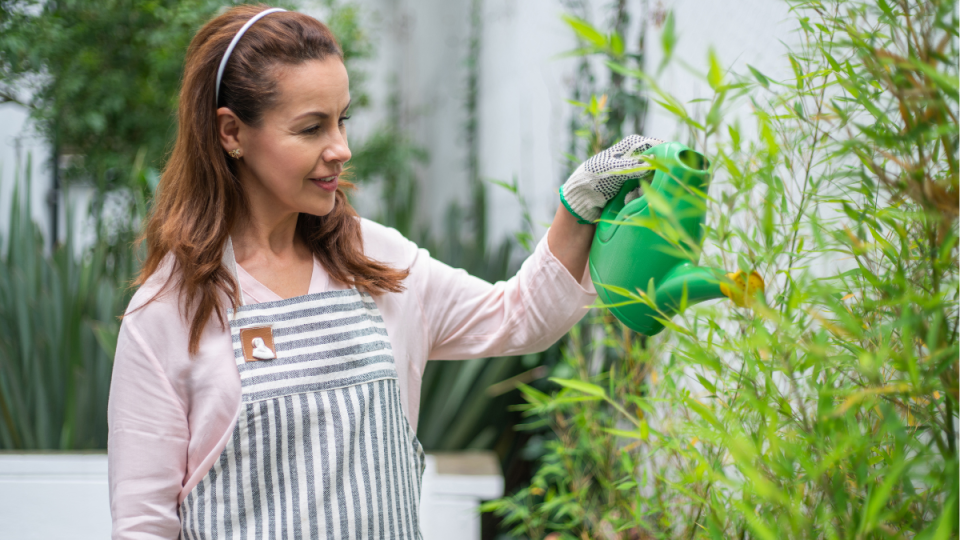Pet-Friendly Weed Killer Options For Total Pet Safety and Owner Peace of Mind
Summer is in full swing and your garden is looking lush and beautiful. When weeds pop up, you want to get rid of them as quickly as possible to keep your yard in the best condition. However, if you have pets, you shouldn't be too quick to use just any weed killer as many of these products contain herbicides that can be dangerous and even fatal for animals if ingested in excess. If you’d rather avoid the risk entirely and go the safest possible route to eliminate any concerns of herbicide poisoning, there are completely pet-friendly weed killer options at your disposal.
Related: Planting for Pups: How To Create a Dog-Safe Garden
When are herbicides harmful to pets?
One thing that’s important to note is that if you’re using organic herbicides, applying them properly and with restraint, waiting to let your pets roam freely in the area until the products have dried, consistently supervising them in any place where the products were used and, most importantly, keeping containers and large quantities of the products out of your pets’ reach, there is little risk of severe illness or injury.
In the Merck Veterinary Manual, P. K. Gupta, DVM, PhD, says “Most health problems in animals result from exposure to excessive quantities of herbicides because of improper or careless use or disposal of containers. When herbicides are used properly, poisoning problems in veterinary practice are rare. With few exceptions, it is only when animals gain direct access to the product that acute poisoning occurs.”
More recent synthetic organic herbicides, Gupta says, are quite selective for specific plants and have low toxicity for mammals. Other inorganic herbicides were formerly used more widely and are more toxic to animals even when used exactly as directed.
“Pet parents should be on particular lookout for the use of inorganic herbicides containing arsenic compounds, ammonium and borax,” cautions Dr. Rebecca Greenstein, Veterinary Medical Advisor for Rover. “Organic weed killers containing paraquat, diquat, dicamba, 2-4-dichlorophenoxyacetic acid (2,4-D) and organophosphates (like Roundup) have varying levels of toxicity, but can cause the most serious poisonings when accidentally ingested in large amounts.”
Additionally, Greenstein adds that while cocoa mulch looks innocent enough, it can cause symptoms similar to chocolate poisoning in dogs when ingested in large amounts.
How to ensure you’re using pet-friendly weed killer
Ultimately, the best way to have full peace of mind that there is zero risk of your pets being affected by your lawn care products is to go the all-natural route. This can vary from homemade DIY solutions using non-toxic household products to weeding manually.
“Mulch, hand-weeding, and planting heartier, native plant species to outcompete weeds are additional strategies that can limit weeds in your garden,” Greenstein notes of the most pet-friendly options.
Weeding with homemade solutions
"Some great organic, non-chemical options for controlling weeds in your garden are high-powered vinegar (choose one with 30% concentration), saponified soap, or finalsan,” says Jennifer Hankey, founder and CEO of The Green Queen. “You can use any of these to control weeds in your garden and even your beds around your home. Just don't spray your plants or grass directly since they are strong enough to burn them; use them in the soil.”
Another option Hankey offers is neem oil, which she says will help prevent and kill fungus on your plants and keep pests at bay when mixed with water and sprayed directly on plant leaves. Follow the label instructions to mix the right proportions of oil and water and test a small area first to ensure your plants can tolerate it, she advises.
Greenstein also suggests spray solutions of vinegar, salt water, pure lemon juice and plain baking soda may have some efficacy when it comes to natural weed control.
Weeding with boiling water

"For weeds, we often use scalding rather than chemicals, particularly when homeowners have pets or kids and they'd prefer to keep chemical use down to an absolute minimum,” says Matthew Consolo, owner of Dreamscape Construction. “Scalding works really well, especially around borders, paths and terraces — basically, areas that aren't surrounded by ornamental plants or mid lawn. It's so simple, all you need is a kettle, water, and a watering can with a heat proof handle. If you can't find a can with a heat proof handle, just pop on heat proof gloves.”
Consolo says his team will first trim the weeds (which is a vital step to make sure you’re not just scalding the leaves), then scald them with boiling water. This works best, he says, for softer wide-leafed weeds, and you should pour slowly so they get a good soaking. For tougher weeds, Consolo adds, you can try scalding them first and then covering them with baking soda, which can make the soil inhabitable for the offenders.
Try the tarp method when weeding
Sarah Warner, Greenhouse Manager at the Case Western Reserve University Farm, says she likes to use tarps over growing spaces to manage weeds. This method, she explains, helps to kill overgrown weeds, add organic matter into the soil, keep the soil covered from erosion and prepare the space to be planted into. Warner suggests weighing the tarp down with sand bags, bricks, or logs to keep the tarp as close to the ground as possible and let zero sunlight in.
Keep reading for more ways to keep your pets safe outdoors this summer!
Why Is My Dog Sneezing So Much? Vet Shares the Top Causes + When to Be Concerned
Why Is My Dog Panting So Much? Vet Weighs in + Offers Genius Solutions
Pet Itch Relief: Find out What Causes Itchiness in Your Pets and How to Find a Solution

